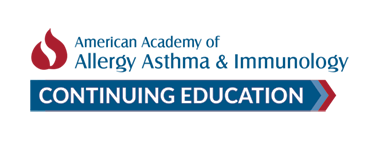2015 New England Society of Allergy Fall Meeting
ONLINE REGISTRATION IS NOW CLOSED. ON-SITE REGISTRATION WILL OPEN AT 7:00 AM AT THE SHERATON PORTSMOUTH HARBORSIDE HOTEL ON SATURDAY, 17 OCTOBER.
This is a live meeting that will take place 17-18 October 2015.
NESA provides ongoing educational meetings to allow our membership to keep up to date with the latest developments in the field of Allergy and Immunology. Our target audience consists of NESA members, any physician interested in the field of Allergy and Immunology (including fellows in training), and any Allied Health professional (including RNs, Nurse Practitioners, Physician Assistants) interested in increasing their fund of knowledge in the field.
Physicians can earn up to 6.00 AMA PRA Category 1 CME CreditsTM
Nurses can earn up to 6.00 Contact Hours
Credit must be claimed byJune 30, 2016. Any credit request on or after July 1, 2016 will be subject to an administrative fee.
System Requirements: Two most recent versions of Internet Explorer, Safari, Google Chrome, and Firefox
Physician Member: $250
Physician Non-Member: $375
Nurse/Allied Health Member: $250
Nurse/Allied Health Non-Member: $375
Residents/Fellows-in-Training: Free
Target Audience
Allergist/Immunologists
Other Physicians
Allied Health Providers
Fellows-in-Training
Learning Objectives
Upon completion of this activity, participants will be able to:
1. Describe novel targets for potential asthma therapeutics, and why they might not work.
2. Assess whether asthma is primarily and disease of the adaptive immune system acting through T and B lymphocytes or if it is an intrinsic disease of epigentically-differentiated lung tissue.
3. Recognize that chronic rhinosinusitis, at least in its eosinophilic manifestations, is a lifelong disease that, once established, will persist independent of adaptive immune responses.
4. Recognize that chronic rhinosinusitis comprises numerous distinct entities, each with its own pathogenic mechanism, and be able to incorporate this knowledge into disease-specific treatment approaches.
5. Describe the mechanism and management of worrisome drug eruptions.
6. Explain the role history, skin testing, graded challenge and desensitization play in the management of patients with a history of allergy to non-penicillin antibiotics.
7. Recognize recent advances in food allergy treatment.
8. Understand the results and conclusions from the LEAP study.
Available Credit
- 6.00 AttendanceAttendance credit.
- 6.00 CECE credit.
- 6.00 CMECME credit.

 Facebook
Facebook X
X LinkedIn
LinkedIn Forward
Forward